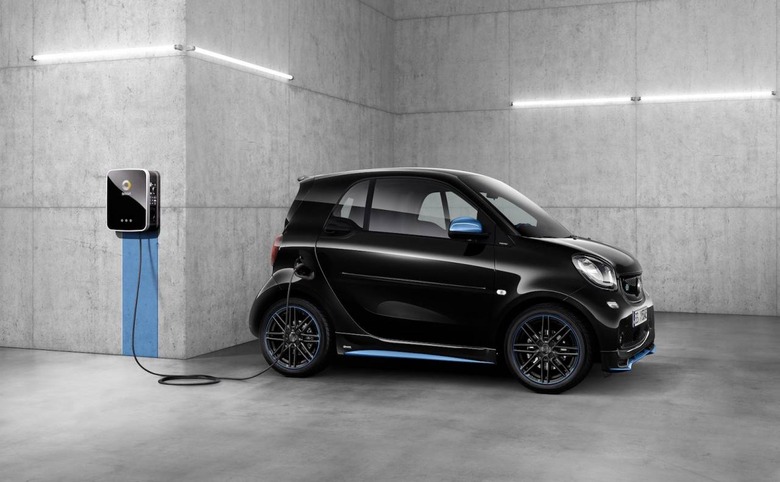All Gas Stations Must Charge EVs Too Rule German Lawmakers
The German government is requiring all gas stations in the country to offer electric vehicle charging, as part of an aggressive push to encourage motorists out of combustion vehicles and into EVs. Described as "an ambitious program," the new economic stimulus package announced this week by German Chancellor Angela Merkel sees cuts to tax and electricity pricing, among other things, but also puts green transportation front and center.
The goal, German legislators have said, is to have one million charging stations available by 2030. The government itself will promote development of a public charging station network by 2025; that will include a so-called "master plan for the charging station infrastructure."
Perhaps the most visible part of that plan will be the mandatory installation of new EV chargers. All gas stations in Germany will have to provide charging stations, while the government will also be pushing for more stations in parking lots.
Despite that, most charging is still expected to go on when drivers are parked either at home or at their place of work. "A buyer's premium will thus also be made available for private and commercial charging infrastructure," legislators say. To try to reduce the complexity around that process, meanwhile, there'll be simpler rules around rented properties too, which among other things will force landlords to approve the installation of EV charging infrastructure. New building codes in the US could well do the same for residential EV charging in America.

With range anxiety hopefully alleviated by all that, the German government plans to expand its current incentive scheme for new electric, hybrid, and hydrogen fuel-cell vehicles. That will now cover models up to 40,000 euros in price ($43,000), while between now and the end of 2025, any first-time registrations and retrofitted electric vehicles will initially pay no vehicle tax.
The idea of using gas station locations to double as places to position EV chargers isn't a new one. Indeed, last year EVgo began installing chargers in US gas stations as part of a pilot program with Chevron. That saw a handful of locations offer between 50 kW and 100 kW fast charging.
The reality, of course, is that the experience of charging most EVs differs significantly from that of refueling internal combustion vehicles. The process for the latter typically takes around five minutes to fill the average gas tank. Even with DC fast charging, however, the rate at which an electric vehicle can vary dramatically.
Connected to the maximum 150 kW charger that the Audi e-tron SUV can take advantage of, for example, you could see 54 miles-worth of charge added in ten minutes. On vehicles that do not support such high rates of charging, meanwhile, you could be looking at more like 10 miles of range added in 30 minutes. Higher-power charging support is increasingly a feature of new EVs, but even then there's no guarantee that a stop off at a gas station electric charger would be good for more than a handful of miles – unless you want to stick around for an extended period.
Nonetheless it's a positive sign that Germany is taking electrification seriously. The government says that it also plans to add new incentives for green commercial vehicles, while also increasing federal funding for local public transport to 1 billion euros ($1.1bn) as of 2021, and then doubling it from 2025. By 2030, legislators say, half of all inner-city buses will be electric.
